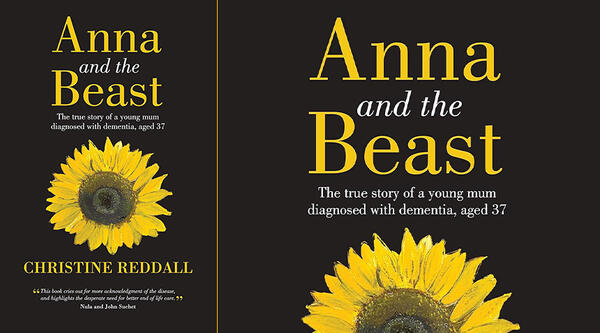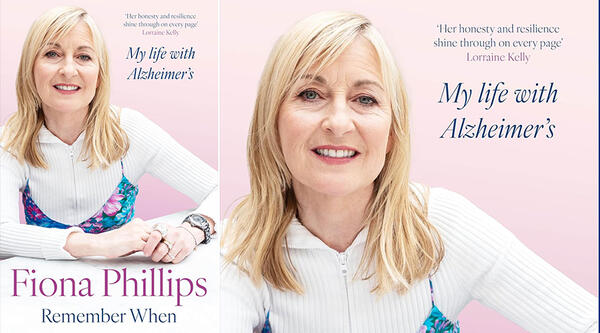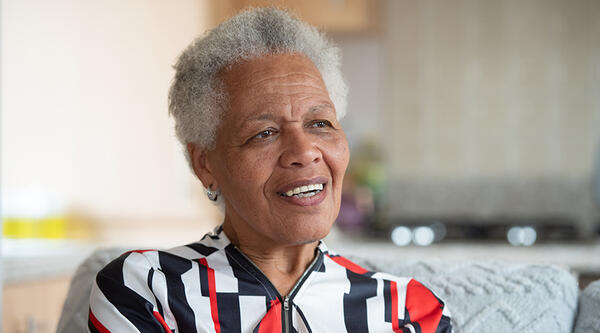Living with dementia as a younger person
The issues faced by someone with young-onset dementia will be very different to those experienced by someone older. This page includes information on talking to children about a diagnosis, driving and any benefit entitlements.
Download or view a PDF copy of this information.
- Young-onset dementia
- What causes young-onset dementia?
- Diagnosing young-onset dementia
- You are here: Living with dementia as a younger person
- Treatment for people with young-onset dementia
What are the main issues of living with dementia as a younger person?
Younger people with dementia experience a range of challenges, which are often different to those that older people face. Younger people are less likely to experience memory loss as one of their early symptoms and may experience problems with behaviour, vision or language first.
They are also likely to have varied aspects to their lives that will be affected in different ways by dementia. This includes:
- Their relationships, including with their children (if they have them).
- Their finances.
- Employment (if they’re working) and daily activities.
- Driving (if they drive).
- Their hobbies and interests.
All of these can make it hard for a younger person to adjust to a diagnosis. Dementia can also be harder for younger people because it usually comes at a time in their life when it is least expected. However, there is support available and planning ahead can make a big difference.
Relationships
Dementia can mean lots of changes to a younger person’s plans for the future as they adapt to living with the condition. This can be difficult to come to terms with for both the person and their family.
After their diagnosis, younger people with dementia and their families may find that friends and other family members don’t stay in touch or provide the support they need. This can be for different reasons. Dementia in a younger person is unexpected, so friends and family may not understand what the person and those close to them are going through. Giving people information, such as this page, can help them to understand and come to terms with things.
If you’ve been diagnosed with dementia, you may have at any age can lead to questions about how roles in relationships will change.
Over time, most people with dementia will depend more on family, friends and professional carers. This can be hard to accept, especially if you are normally the one who helps other people.
Often, someone close to you will take on more responsibility. They are likely to eventually become your main ‘carer’, although you may not want to use this term or see things in this way.
Work and dementia
Many younger people say that their first symptoms of dementia appeared while they were at work. For instance, they might have started to have problems with remembering appointments or how to do something they’d been doing for a long time. They may also find it difficult to concentrate or follow conversations.
Some people continue working for many years after a diagnosis of dementia. Others decide to stop, either because they no longer want to work, or the type of work they do means they’re not able to carry on. Making this decision can be very difficult.
Younger people diagnosed with dementia should tell their employers about their diagnosis.
Their employer may be able to support them. Under the Equality Act 2010 an employer must make ‘reasonable adjustments’ to help the person with dementia to do their job. For example, this could mean:
- Working in a different place – this may be in a building that is closer or working from home.
- Having longer breaks.
- Working in a quieter area.
- Using equipment and adaptations.
People have a right to ask for the support they need. An employer can only turn down a request if they have a ‘business case’ for doing so. This could be because they can’t afford the adjustment.
Work and dementia
Having dementia doesn’t mean you automatically have to give up work. This booklet gives advice on talking to your employer, ways they can support you, and how the law protects you if you continue to work.
Finances
Younger people with dementia often have a range of financial commitments that may be impacted by their diagnosis. For example, they may still be repaying their mortgage or other loans, or supporting dependent children. Dementia can cause worry and uncertainty about how they will manage financially in the future. If the person has to give up work this can have a financial impact, not just on them but on the rest of their family.
There is financial support available for people with dementia and their carers, including a range of possible benefits. It’s a good idea to arrange a benefits check with a benefits adviser so they can let the person and those supporting them know what they are entitled to. Contact Citizens Advice to do this.
What benefits am I entitled to?
Claiming the benefits you are entitled to could make a big difference if you are a carer or person with dementia. Find out how to claim benefits and read about how these will be paid.
Driving
If a person is diagnosed with dementia, it doesn’t always mean they have to stop driving straight away. Some people with dementia decide to give up driving voluntarily.
If they have a driving licence, DVLA or DVA will ask for a doctor’s report and may ask the person to take a driving assessment. The driving assessment can help with any final decision. It is important for the person to follow medical advice when it comes to driving, even if they are waiting on a decision from DVLA or DVA.
More information on driving and dementia
A diagnosis of dementia is not in itself a reason to stop driving as long as it's safe to do so. Read about what to do if you want to continue driving after diagnosis and about the legal aspects.
Staying involved and active
Dementia can have a big impact on a younger person’s ability to do their daily activities and things they enjoy. Keeping active and involved can support their sense of identity and how they feel about themselves. It is important for people to maintain their independence and carry on doing things that matter to them.
Younger people with dementia may need support to continue doing activities. Some people stop doing things after their diagnosis, or find they lose opportunities for doing things if their friends are unsure how to act around them or stop inviting them. However, it’s often possible to adapt hobbies and activities to make them easier to do with dementia. If possible, it can be helpful to make changes in advance, instead of when it is suddenly needed.
There is a range of technology available that can help younger people with dementia with day-to-day activities. There are lots of apps that can help with remembering appointments, taking medication or even continuing hobbies. For more information a person with dementia may want to read Using technology to help with everyday life.









Partnerships and sexual relationships often change when one partner has dementia. Coping with and adjusting to these changes can be very difficult for younger people with dementia.
For more information on this see Sex, intimacy and dementia.
Some couples may find that their relationship has changed during the time it has taken to get a diagnosis. Some people with dementia find they become much more or less interested in sex. Sometimes a partner who is caring for a person may be less interested in sex, especially if they are tired. This is not uncommon, and many couples need time and support to adjust. There is no single ‘normal’ way of dealing with these. changes.
Issues with their relationship may have been what leads some couples to the doctor in the first place. When one partner receives a diagnosis of dementia it means the couple will need to think about how things currently work in their relationship and what changes are needed. As the person’s dementia progresses, more changes and adaptations will be necessary.
Younger people with dementia are more likely to have dependent children, and dementia can have a huge impact on them and their family relationships. It can be hard to explain to children what the diagnosis means and how it might impact the family. It’s important to try and be honest with children, listen to their concerns and feelings and make time to answer any questions they have.
If the person has (or thinks they have) a genetic form of dementia, that can have a huge impact on their relationship with their children. They and their children may have questions about genetic testing and whether they should have it. The person may feel guilty about putting their children at risk. Children may be angry or unsure how to process this information. It’s really important that the family have access to appropriate support and counselling to deal with this.